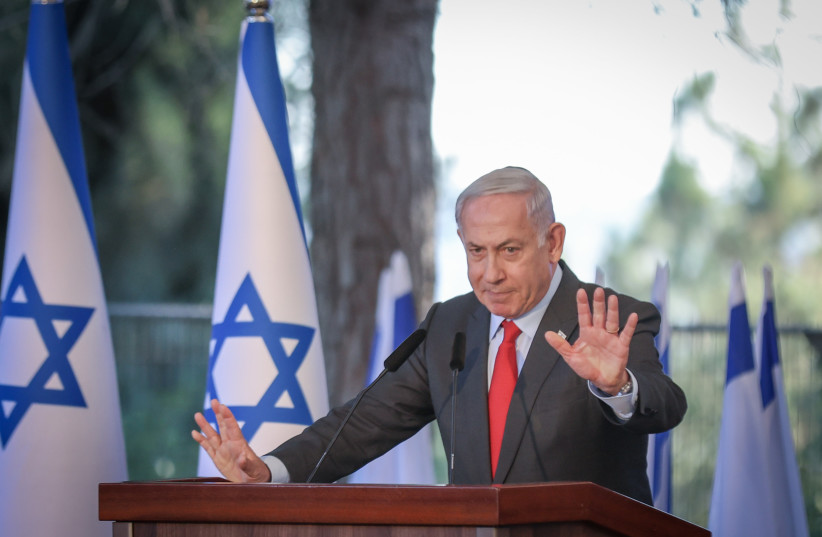Prime Minister Benjamin Netanyahu dismissed as “silly’, objections leveled at the Knesset’s passage of the first leg of his judicial reform plan, noting during an interview he gave to ABC broadcast on Thursday that the change was “minor”.
“This minor correction is common to all democracies,” Netanyahu said.
He spoke just three days after the Knesset approved the reasonableness standards bill, which reduced the Supreme Court’s power to review government policies.
Opponents of the measure have warned that it is the first step in a judicial overhaul program that would transform the country into a dictatorship. The protests against the plan have rocked and divided the country since Netanyahu returned to power at the end of December.
Netanyahu: Reasonableness law is a 'minor correction'
Netanyahu told ABC that the bill and his plan strengthened Israeli democracy, by restoring a balance between the judicial branch and the legislature.
“It’s described as the end of Israeli democracy; I think that is silly,” he said.

“We have the most activist judicial court on the planet,” Netanyahu said. It has “arrogated for itself power from the government, from the executive and the legislative branches. We are trying to correct it.
“I want to bring the pendulum to the middle, I don’t want to bring the pendulum to the other side,” Netanyahu explained.
Imagine that in the US, the Supreme Court could nullify the decisions of the White House, he said, adding that the American people would never accept that.
Netanyahu also brushed aside criticism that he has rushed the legislation through the Knesset. US President Joe Biden and American officials, including former Ambassador Tom Nides and Secretary of State Antony Blinken, have all asked him to slow down and use a consensus process.
This has been as “slow as you can go,” Netanyahu told ABC, noting that he has been in office for seven months, and had paused for three months to seek consensus but that the opposition had refused to accept any compromises.
“I couldn’t get anything from the opposition, therefore, decided to proceed with this minor correction... and I am still trying to proceed – if not with a consensus with the opposition, then at least with something that has broad consensus with the public,” he said.
“I am more optimistic now than I was before. Now that they see we are prepared to move without them, we have a majority, then maybe we will be able to move with them,” Netanyahu said.
“I hope the opposition leaders show responsibility and come to the middle.”
Netanyahu also downplayed tensions between himself and Biden, given that the president did not issue an invitation to the White House typically extended to Israeli prime ministers after an election.
Biden did invite Netanyahu to meet him in the US when the two men spoke last week, but he did not clarify that it would be at the White House. Biden administration officials have refused to confirm a White House invite, noting that no venue had been set.
Netanyahu told ABC that Biden, “in the last conversation we had, invited me to the White House in the fall. I think it’s in September, but we will finalize the date.
“I think our relations are very strong. I am not just saying that. The cooperation in intelligence, in security, in strategic matters is as strong as it has ever been,” he said.
“The relations with the US are as strong as ever,” Netanyahu emphasized.
“Believe me, the US is our irreplaceable and indispensable ally,” he said. “We have no better friend and … the US has no better friend than Israel, not only in the Middle East, but in the world.”
